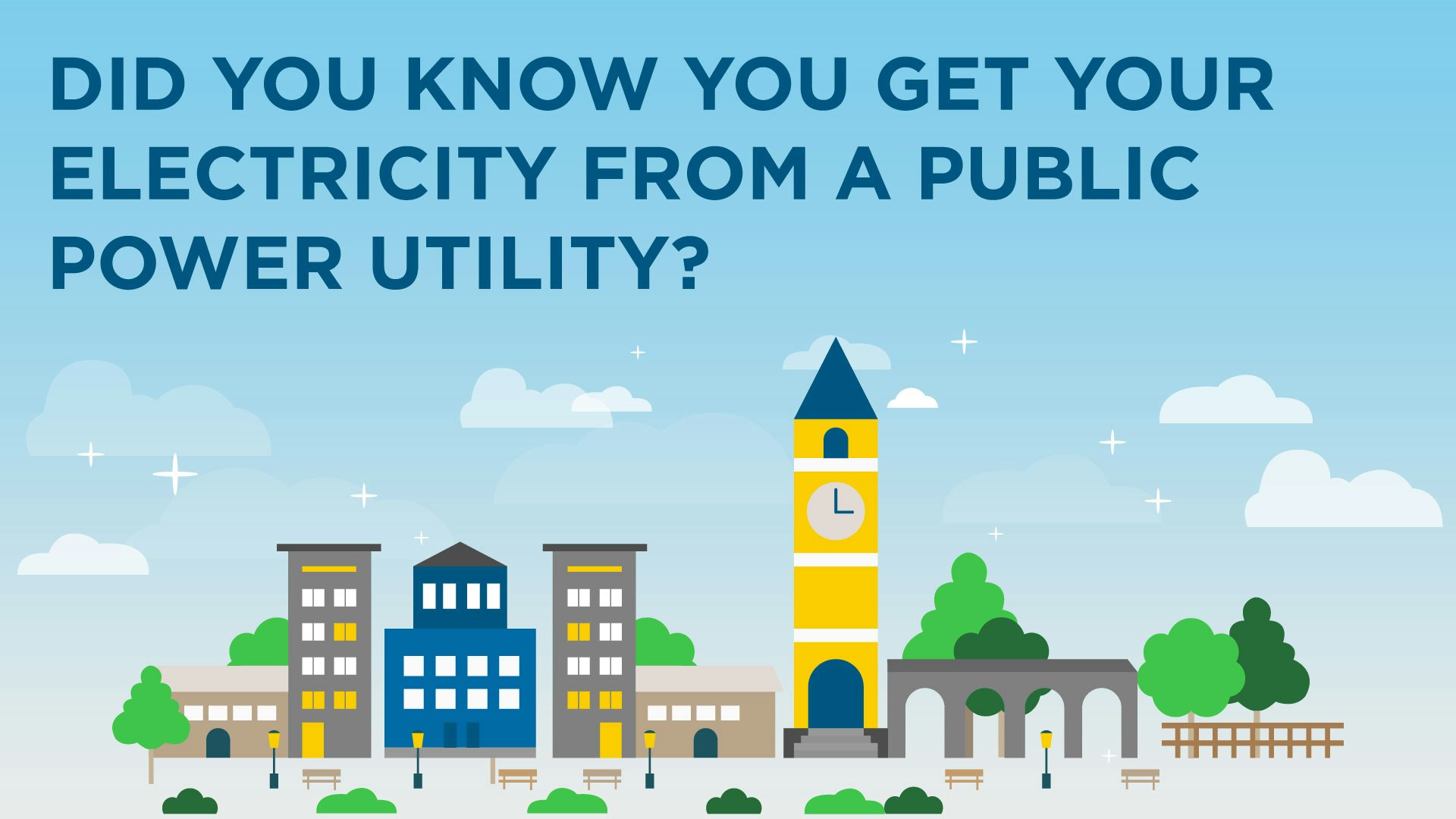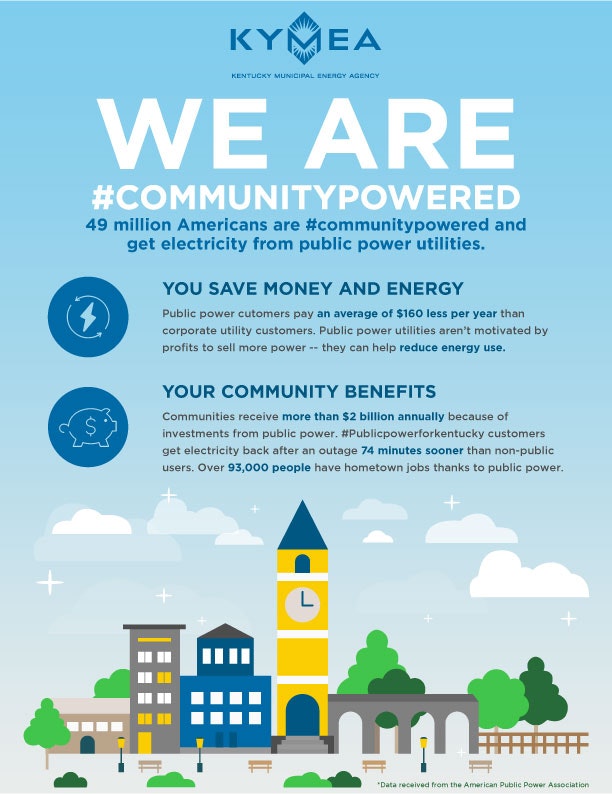PUBLIC POWER
Public Power exists to serve its members. Members may choose to enter into contracts with KYMEA for power supply or other services. Members also have the flexibility to establish projects for the benefit of one or more members, such as the All Requirements Project (AR Project), which has been created to acquire power supply resources to serve the needs of eight participating all requirements members. The business model objective of KYMEA is to provide cost-effective resources and services for the benefit of its members to enable them to achieve objectives they have set for themselves more efficiently and at lower costs than they could achieve individually.





LOCAL GOVERNANCE REGULATION
Public power utilities are operated by local governments to provide communities with reliable, responsive, not-for-profit electric service. Public power utilities are directly accountable to the people they serve through local elected or appointed officials. Municipal systems have a diversified power portfolio, purchasing power on the wholesale market, as well as generating electricity from coal, solar, hydro, wind, landfill gas, and other renewable, natural gas, diesel and distributed resources.
Municipal electric systems are held to public accountability standards. Public records, open meetings, competitive bidding, public budget hearings, and prevailing wage laws are just a few of the public accountability standards unique to most municipal electric suppliers.
There are two other types of electric utilities: investor-owned utilities (IOUs) and rural electric cooperatives (co-ops). Most retail electric customers in the nation (68 percent) are served by IOUs, which are private stockholder-owned, for-profit companies. About 13 percent of electric customers are served by electric cooperatives.
AFFORDABLE
Public power utilities are not-for-profit entities that provide electricity to customers at the lowest rates. Homes powered by public power utilities pay nearly 15 percent less than homes powered by private utilities. Businesses that get electricity from public utilities also pay less than businesses that get electricity from private utilities.
DIVERSE SOURCES
Public power generates 10 percent of all electricity in the U.S. and distributes - or sells at the retail level - 15 percent of all power flowing to homes and businesses. Public power utilities buy or generate electricity from natural gas, coal, and nuclear, as well as renewable energy sources such as solar, water, and wind. In several regions, public power utilities can buy wholesale hydropower generated from federal dams at cost and pass the savings on to customers. Across the country, public power utilities buy wholesale electricity and other services through joint action agencies to leverage economies of scale and strength in numbers.
GIVING BACK
Public power utilities are embedded into the fabric of their communities and support a range of community programs including charitable, educational, and beautification programs. Each dollar of a public power utility employee's paycheck circulates through the community an estimated five times. On average, public power utilities pay 5.6 percent of electric operating revenues back to the community - through taxes, fees, and special services. Public power gives 33 percent more back to the community than private utilities. Public power infrastructure projects - such as new generation equipment, transmission lines, and distribution system upgrades - are often funded through the issue of tax-exempt municipal bonds. Funding through municipal bonds means community members invest in their electricity infrastructure and receive interest as public power utilities pay back the loan.
AMERICAN PUBLIC POWER ASSOCIATION
The Kentucky Municipal Energy Agency is a member of the American Public Power Association (APPA). The Association is the voice of not-for-profit, community-owned utilities that power 2,000 towns and cities nationwide. They represent public power before the federal government to protect the interests of the more than 49 million people that public power utilities serve and the 93,000 people they employ. The APPA advocates and advises on electricity policy, technology, trends, training, and operations. Their members strengthen their communities by providing superior service, engaging citizens, and instilling pride in community-owned power.



